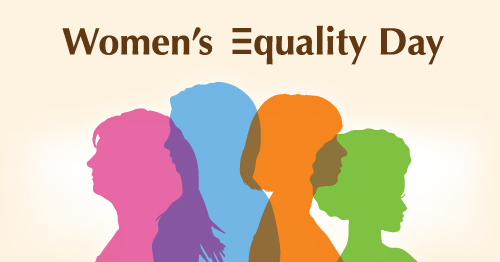Five things we demand at work on Women’s Equality Day

Twenty-sixth of August, Women’s Equality Day is not just a time to remember the passage of the 19th Amendment to the U.S. Constitution giving women the right to vote. It is a day to remember how far we’ve come, but we are still very far from true gender equality worldwide. The fundamental principle of humanity is that all humans are equal in rights, dignity, and worth but yet we are living in a world ravaged by gender inequalities. women are still struggling with elementary issues like safety, economic independence, unequal pay, and patriarchy. They find themselves in a quandary whether to rebel against the system or learn to live with it. Women still feel an existential threat wherein revolting for equality means loss of security. This Women’s equality day we demand to see more women in leadership positions and in positions of power to effect change. We want women to be paid equally for equal work, and, most importantly, to be treated the same and awarded the same opportunities and POSH compliance.
Here are five things we demand at work on Women’s Equality Day –
Bridge the gender pay-gap
As per a report by the World Economic Forum, it could take 170 years to bridge the gender pay gap on a global level. As per the latest Monster Salary Index, women in India earn 19% less than men. Further, on average, 66 percent of the work done by Indian women is unpaid. Women in India are disproportionately burdened with unpaid work and care work. According to an OECD report, women spend on average 352 minutes a day on unpaid work against 52 minutes among men. The additional disadvantages that working mothers face vis a vis working fathers and childless individuals account for a sizeable share of the gender wage gap as well as the disparity in promotions at work. Therefore, innovative policies are required to incentivise more active sharing of caregiving responsibilities. For instance, companies could support the return of working mothers into the workforce, by paying more and providing daycare services for children.
Freedom from gender stereotypes at the Workplace
Women make better Human resource managers and only men can handle extreme work pressure are typical examples of gender stereotyping. Gender stereotyping has been clearly identified as something that impedes the achievement of gender equality and the empowerment of women. As a culture we must encourage an open policy and let people be the way, respecting their individuality rather than tainting their roles with our assumptions.
Build gender-inclusive workplaces
Most women could tell you they’ve experienced misogyny from co-workers, clients, or colleagues. Sexism. It’s every day and everywhere. We have failed women who face rampant and unapologetic sexism at the workplace. Be it with respect to promotions, increments or unequal pay, the gender bias is so ingrained in the workplace culture that we fail to see it most of the time. However, we need to fight sexism at the workplace and create gender-neutral workplaces. The gen-Z companies should vouch for non-discrimination and gender-inclusive practices. For instance, hiring managers should ensure that no discrimination is done based on gender while designing job roles or deciding pay scales.
POSH compliance
The Sexual Harassment of Women at Workplace (Prevention, Prohibition and Redressal) Act 2013 is a positive step towards addressing harassment at work. Yet, 84 percent of companies surveyed in 2018 by the Observer Research Foundation (ORF) and the World Economic Forum (WEF) report failure of POSH compliance. Besides that, more than half (51 percent) of India’s workforce is self-employed, compared to 33.5 percent who are casual labourers on whom these employment legislations do not apply. How do we ensure POSH compliance to them Social security and protection must be delinked from employment and linked to the individual to be portable in an independent, informal, and increasingly digital workforce. Having a working Internal Complaints Committee(ICC) body and regular training sessions on prevention of sexual harassment at the workplace are not matters of privilege but our duty towards women to provide them a safe working environment.
Promote Women leadership
Do you know only 4.8% of CEOs are women? A 2018 Namely Diversity Report revealed that males are more likely to receive recognition at work and female employees tend to be under-recognized within the organization. The report also found that males receive more raises and promotions than female employees. The cause of these discrepancies could be attributed to individual bias. When creating an environment to develop more female leadership, recognizing our prejudice and bias is imperative to overcoming barriers.
Read our insights about diversity, legal updates and industry knowledge on workplace inclusion at Ungender Insights. Visit our Blog.
Sign up to stay up-to-date with our free e-mail newsletter.
The above insights are a product of our learning from our advisory work at Ungender. Our Team specialises in advising workplaces on gender centric laws.
or email us at contact@ungender.in




